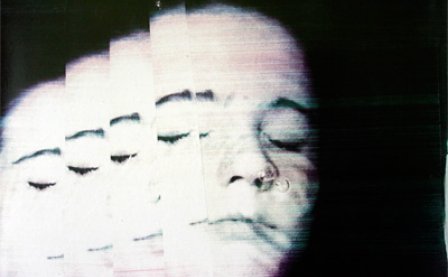Given last year’s buzz about the re-emergence of an ill-defined lo-fi sound, it was a shame when a solid album like Little Claw’s Human Taste didn’t get more attention. But, in retrospect, this buzz had more to do, as Paul Brousse might have said, with language than deed. For, despite the construction and proliferation of this lo-fi discourse by some of the most influential indie music websites and blogs throughout the year, when it came time to organize best-of-the-year lists, the bands that were used to build this discourse were startlingly under-represented. Perhaps it’s best, however, that Little Claw weren’t dragged into this lo-fi game; this way they won’t be forgotten like those countless other bands who disappeared from the indie-forecast the moment they appeared.
If it’s not obvious, I’m playing a bit of a trick with language myself, namely by using the term “lo-fi” as if there’s no diversity or tension among those bands that are often haphazardly categorized within it. Listening to bands like Vivian Girls or Wavves on the one hand, and Woven Bones and Little Claw on the other, ought to be enough to reveal the differences within the lo-fi domain — the most obvious of which are that the latter bands have a much darker spirit lurking within their sound, and, unlike the former bands, there’s no possibility that they will be absorbed by mainstream music channels; as some prefer to say, they are lower-fi. This, most likely, is the reason why Little Claw has been left out of the once over-spilling but now forgotten buzz bins found on certain indie websites. But enough already with this political shit, let’s get down to the sounds.
What initially stands out on Human Taste isn’t the lo-fi hiss and fuzz, but the minimal and pop-friendly percussion. The acoustic guitar on the title track is accompanied by a simple tambourine hit and the galloping beat of what sounds like amplified foot taps. This approach continues throughout the album, and the influence of Phil Spector-produced percussion grooves are most evident on “Colors You Drown,” where the beat is identical to, but much nastier than, that found on The Ronette’s “Be My Baby.” This past musical era permeates Human Taste, not just percussively, but with the unnamable hauntedness that persists underneath the lighter pop moods. This tension between pop’s beautiful appearance and the disturbing world it conceals is consciously embraced, and when Heath Heemsbergen screams that “there’s no way out” on “Frankie,” one is left thinking that it’s pop itself that he’s referring to. Perhaps pop, like late-capitalism, is absorptive such that even an intentional attempt to break out of it by embracing darker themes, sounds, and moods results in those theoretically contentious aspects translating into tolerable instances of practical pop-reproduction.
The songs on Human Taste are mostly guitar-centric, with dissonant phrases or chugging, distorted riffs ripping over the beat structure. Kilynn Lunsford’s vocals perfectly enhance these dissonant notes and the evil, creeping pop mood. Whether she’s leading us down into the frightening trance space on “Lay To Waste” or building up the anthem on “Colors You Drown,” there’s a rich soulfulness in her vocal delivery. The tasty screeches of dead radio ghost static whip up a particularly sick frenzy on “Breathing Tape,” as the band tests the limits of pop to see if they can’t abandon them altogether. Even if they do ultimately remain within these limits, they stretch and modify them in interesting ways, which is much more than can be said for most similar bands.
More about: Little Claw


